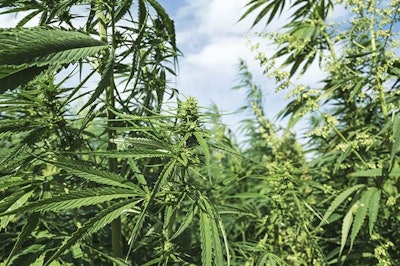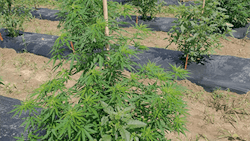
With harvest well under way and storage facilities filling up this fall, state regulators are buttoning plans for next year—and in many cases this means a conversation with the U.S. Department of Agriculture (USDA).
In October, the USDA approved hemp plans from Illinois, Indiana, Michigan, New Mexico, Oklahoma, and South Dakota.
“This plan approval is a huge accomplishment for both farmers and our team,” said Don Robison, seed administrator for the Office of the Indiana State Chemist, which oversees the Indiana hemp industry. “We are looking forward to growing this program and offering more efficient licensing for Hoosier farmers and processing companies.”
While the U.S. Congress approved a one-year extension of the industrial hemp research pilot program structure that were originally slated to expire Oct. 31, many states have forged onward with their plans to adapt to the USDA interim final rule. The most recent approvals bring the list to 26 total states, each one planning to oversee a hemp program that is unique in some ways while ultimately conforming to the USDA template.
As of late October, 13 states were planning to move ahead with the extension of the pilot program into 2021.
Three states (Hawaii, Mississippi and New Hampshire) have thrown the oversight entirely to the USDA and arranged for farmers to seek licenses through the federal government.
The divergent approaches reveal several major trends that will be in play as the hemp industry moves into 2021, its third full year of federally legal status. For one, as Southern Illinois University assistant professor Karla Gage said in a recent interview with Hemp Grower, researchers may be held to the higher compliance standard that governs commercial growers. Elsewhere, interstate transport remains a complicate issue—not only for ongoing law enforcement reasons but for the different protocols involved with hemp testing between USDA-approved states and the remaining pilot programs.
“Allowing the state to continue regulatory oversight is ideal for producers and others involved in the New Mexico hemp industry,” New Mexico Agriculture Secretary Jeff Witte said, advancing one side of this complex conversation. “USDA-approved plans provide uniformity among states, as everyone is held to the same standards.”























